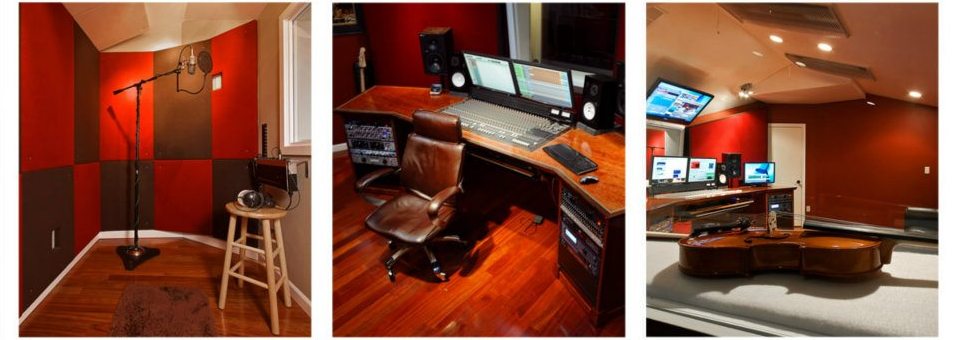
In March 2012, Undercaste Studios released a mixtape featuring 47 artists, many of whom use Undercaste as their primary recording facility. The mixtape — a fully blended collection of original and industry beats — reflects Undercaste’s prominent role in much of the hip hop coming from the Northwest. Created in the mid 90’s by Isaac Meek, Undercaste is now one of the primary epicenters of the long-burgeoning Greater Seattle and Tacoma scenes. This is in part due to their singular approach to the recording process in which engineers offer involved critique aimed at the artists’ development.
Before Undercaste
Meek lived the first ten years of his life with no electricity in southeastern California. After being literally without access to music, movies, or TV until his 1990 move to Seattle, Meek eventually dropped out of high school and enrolled in Audio Engineering and Business courses at Shoreline CC. Meek cultivated his interest in hip hop while playing in jazz and reggae bands; however, he noticed how skeptically his musical peers treated it. “[They] would make fun of me and say it takes no talent,” Meek recalls. Engineers, even, would shortchange Meek’s hip hop-influenced band due to their own lack of interest: “Our recording was terrible. I decided I was going to create a studio environment that would push an artist no matter what style of music they made.” And with this in mind, Undercaste was born.
The Studio
Fast forward to 2007: After more than a decade of 16 hour days, Isaac Meek built his dream studio. With the help of his father-in-law and a prominent acoustics company, Isaac designed and constructed the studio himself. He ended up with an “igloo-shaped room that sits suspended inside another room using massive amounts of rubber.” The custom control room, vocal booth, and comfortable setting for artists has allowed Isaac not only to get the most out of his mixes, but to expand his business as well. In 2008-9, Meek hired two additional engineers, Teal Douville and Randy Ross, enabling Undercaste to operate almost 24 hours each day. Meek, in turn, has acted as both mentor and boss, imparting his vision of a studio that pushes artists to improve.
The Vision
While high end gear and amenities attract a percentage of the clientele, it is the commitment to artist development that retains clients, some of whom drive upwards of two hours to the studio. Jay Barz, a Tacoma native and resident, began recording at Undercaste in 2006. Says Barz, “Coming all the way from Tacoma to the middle of fuckswhere past Seattle isn’t the greatest feeling when I’m staring at the gas pump, but coming home with something I can take pride in and share with the world is one of the greatest feelings.” According to Meek, it is this focus the engineers place on producing artists that is the the foundation of Undercaste’s success. A career built on hard work and good business is the ultimate goal — not a passable 16 bar verse. “The music industry is full of assholes and flakes. I want the artists and affiliates to be immune to the assholes and be good down to earth business people. I would say the difference between Undercaste and most other studios is that we care about the artist.”
The Mixtape
The aforementioned Undercaste Mixtape, perhaps the most comprehensive example of the studio’s local prominence, features 47 artists, including Undercaste-regulars Neema, Sol, eighty4fly, and Element of Second Family. Conceived in 2002, the project was re-sparked as a means of training recent hire Elliott Eide. According to Ross, coordinating with the sheer volume of artists was difficult, but he finished with a desire to “continue building a quality network through Undercaste.” The mixtape can be listened to and downloaded free of charge at undercastestudios.bandcamp.com.
The Future
As the Northwest scene continues to grow and flourish, Undercaste will continue to position itself at the forefront of artist development. As artists who Meek has worked with for years – Sol, Neema, George Zelaya – continue to succeed, so will the studio who has trained them. With the possibility of an independent label and more locations in the future, Meek says simply, “I want Undercaste to be the studio of the future.”

